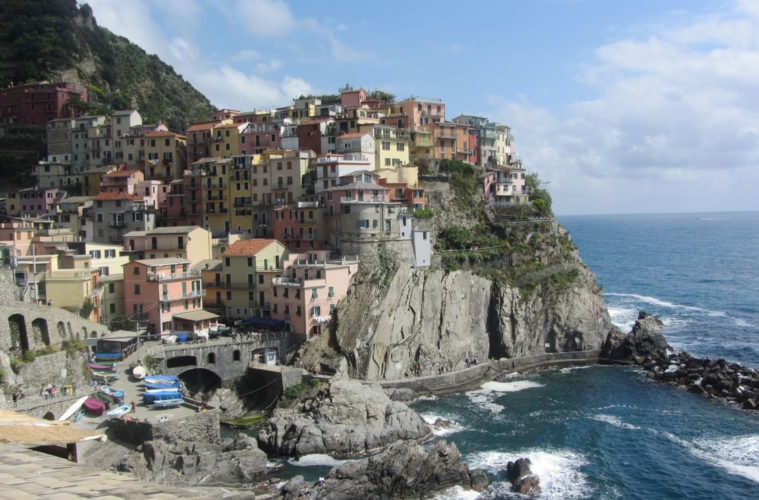The best way to explore the Cinque Terre, a string of charming Italian seaside villages, is on foot, by train or boat
The villages
The Cinque Terre (five lands) of the Ligurian coast in north-western Italy comprises the villages of Monterosso al Mare, Vernazza, Corniglia, Manarola and Riomaggiore.
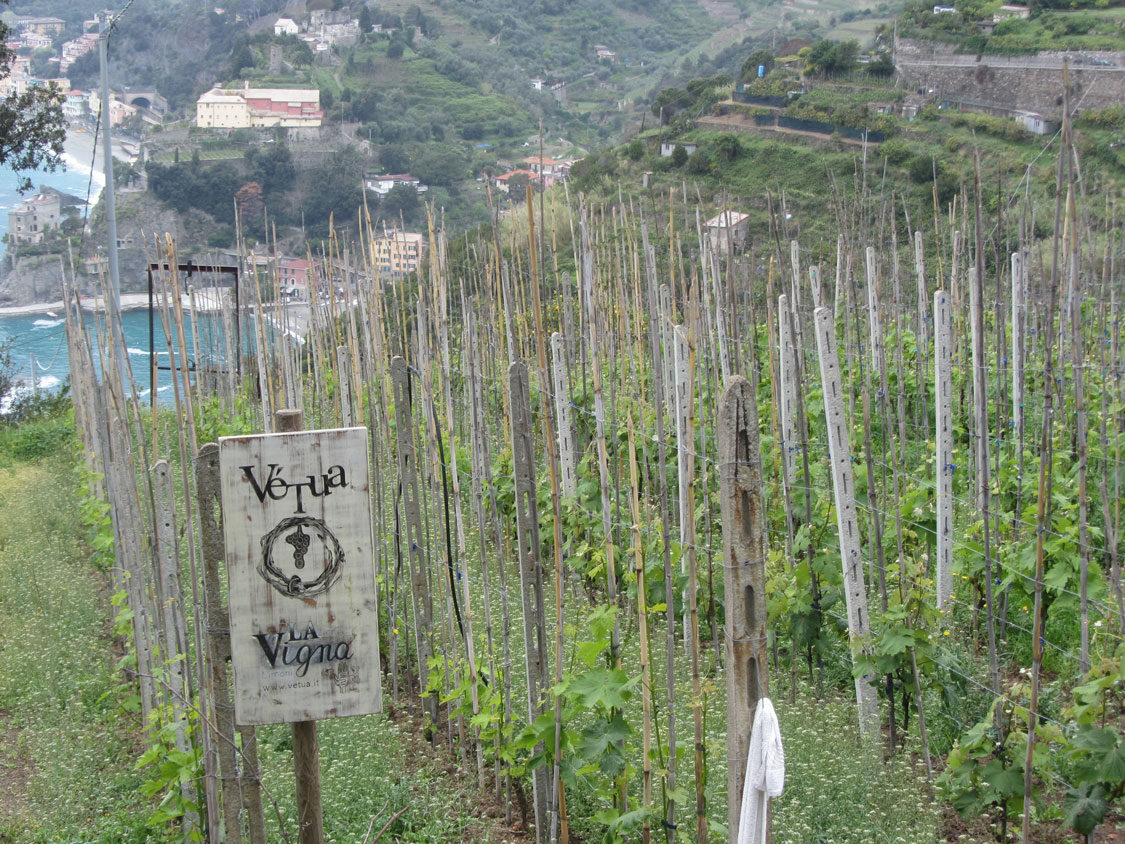
Stroll through the vineyards on the way up the hill.
Centuries ago, the main European trade route was along this ridge, but it’s now considered to be one of the most idyllic areas on the Continent and is a very popular summer holiday destination. A national park and UNESCO World Heritage site, very few places are accessible by car, so it’s a mecca for walkers and hikers.

There was live entertainment on the walk down into Vernazza.
Monterosso al Mare
Monterosso al Mare, means ‘red hill’, and one realises its true charm as soon you venture past its sandy beaches, seafront bars and restaurants through a tunnel into the medieval village. The first of the villages on the Cinque Terre trail, it’s also a good base to go from and come back to. The epitome of laid-back Italian life, this is the place to get up close to the locals by wandering into the old part of town. Pop into wine bars then simply stroll on to find a spot for dinner.
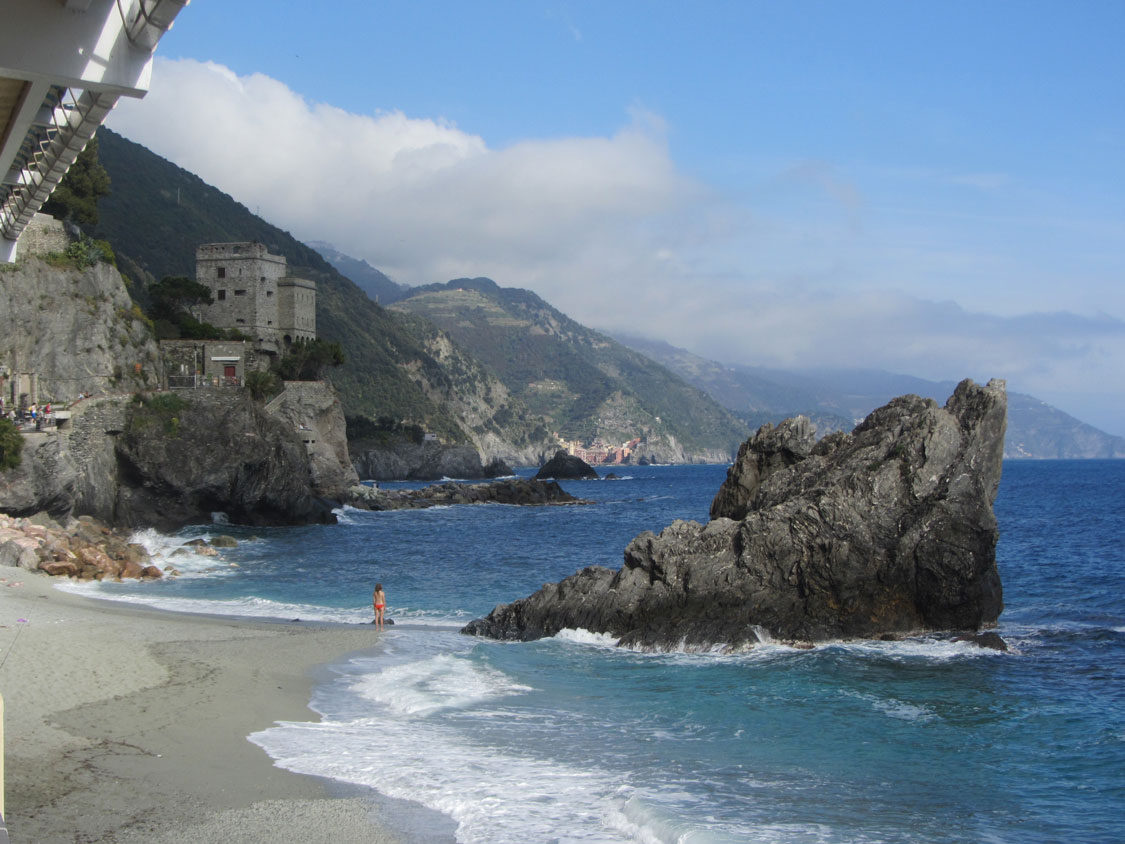
The magnificent seaside at Monterosso.
Wine and dine
The Cinque Terre produces and labels its own wines, many of which are light crisp whites that complement the local food.
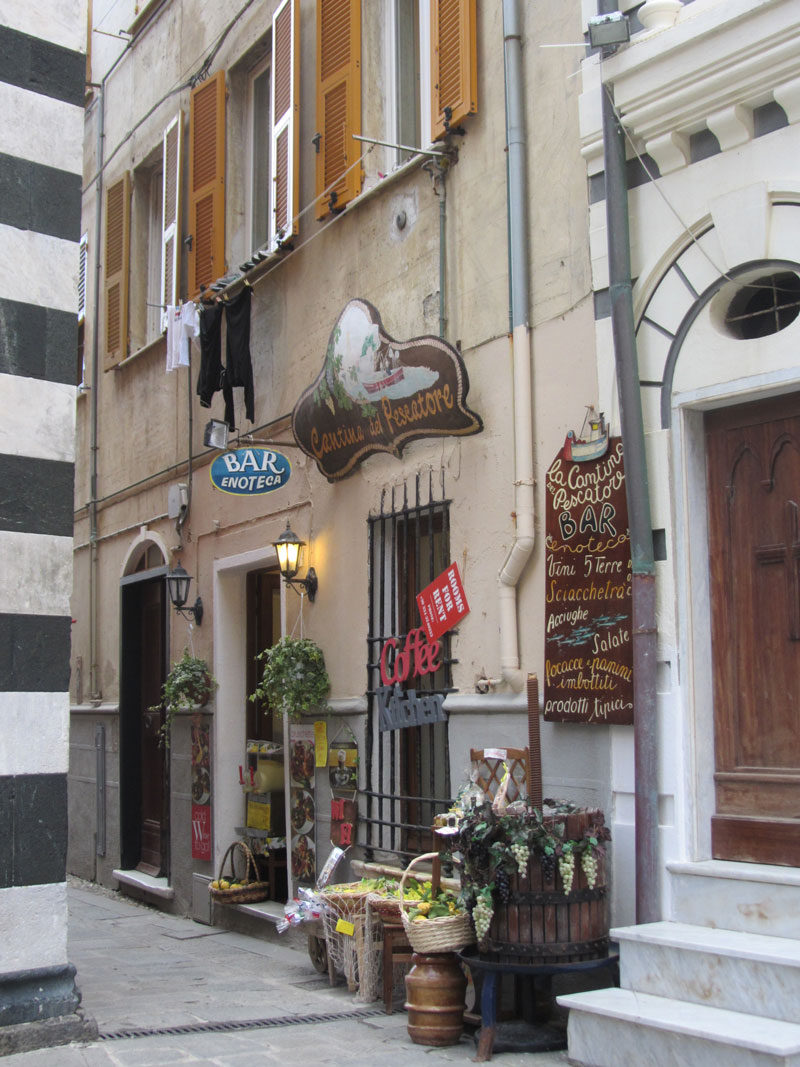
There’s an enoteca (wine shop) in almost every alley in Monterosso.
A number of small local producers sell their grapes to the Cantina Sociale of the Cinque Terre, which also manages the local water supply from natural springs. The family-run Trattoria Da Oscar in Monterossa Al Mare serves what the boats bring in that day, and is a must visit. The menu is sublime with dishes such as gnocchi with prawns, swordfish with a Puttanesca (tomatoes, olives and capers) sauce, the local specialty of anchovies with lemon, onion and capers, or the spaghetti with clams and mussels.
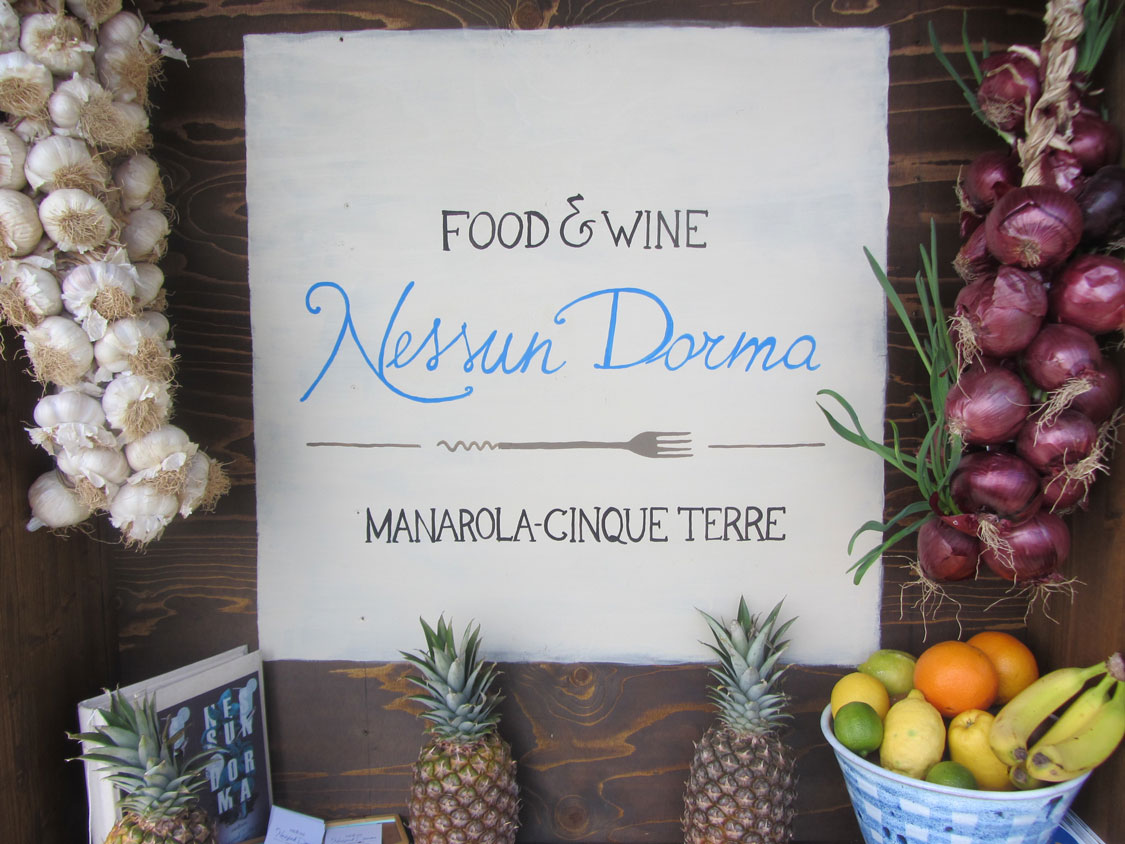
There are many restaurants to choose from in Manarola.
Vernazza
Walking from Monterosso to Vernazza along narrow uphill paths offers panoramic vistas of the sea, vineyards and olive groves. Vernazza is a quaint fishing village with brightly painted boats and a pretty piazza.
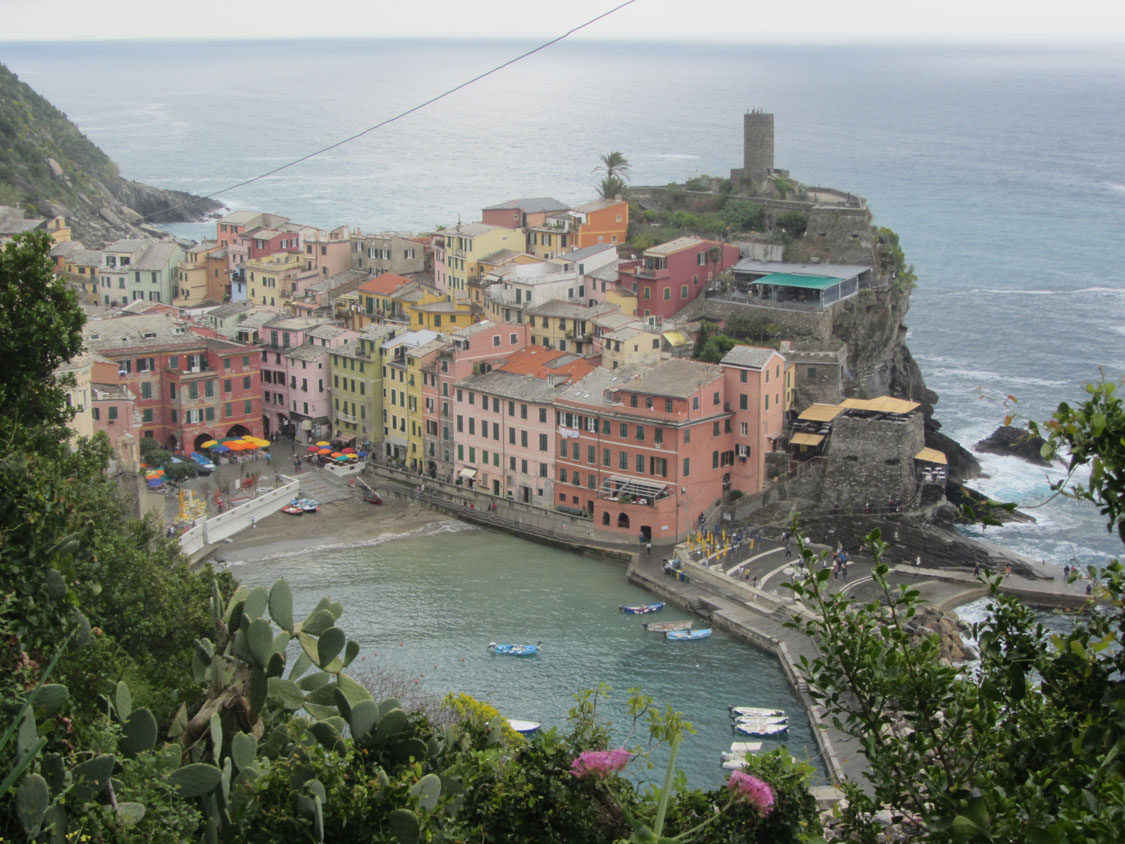
Bird’s eye view of Vernazza.
The locals are proud of their wine, which are made from grapes grown above the village and they will encourage you to taste it, as well as the signature dish of baked potato with olives and tomato. The warm climate means there’s plenty of Mediterranean and subtropical vegetation all along the trail, but remember that in Italian law, the land belongs to the people. Farmers may farm it, but damage or theft is a criminal offence, so walk wherever you want, but don’t steal an olive or a lemon on the way, tempting as it may be.

An inviting shopfront in Vernazza.
Train Travel
If the weather takes a turn (as it did in this case), take a train to Corniglia, the only village set back from the sea. Out-of-season trains run intermittently, not always on time and are crowded because of long delays.
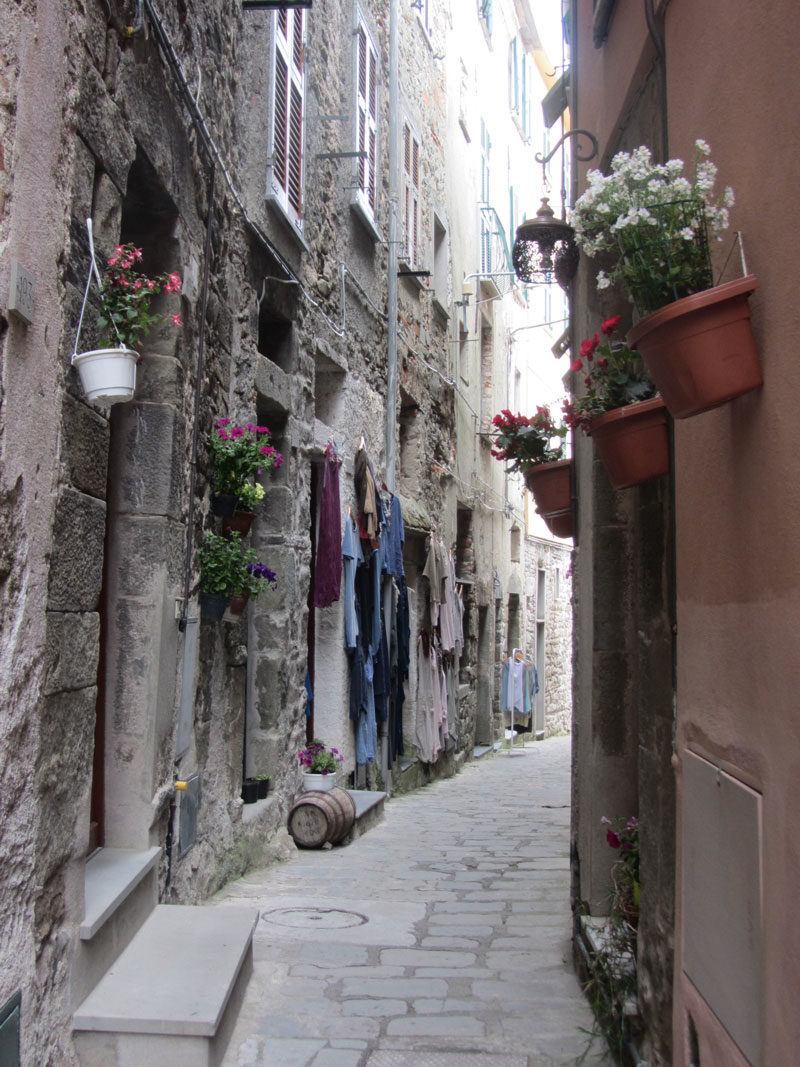
A quaint alley in Corniglia.
You can also approach Corniglia by sea and then walk up 367 steps, should you want the exercise. Once in the village, look out for the symbolic deer and horns in the Carrara marble rose window at the beautiful Church of San Pietro. Good to know is that he coastal paths, which have been walked on for over 3 000 years, are worn away or overgrown, so it’s always wise to grab an updated train timetable on arrival and check for path closures.
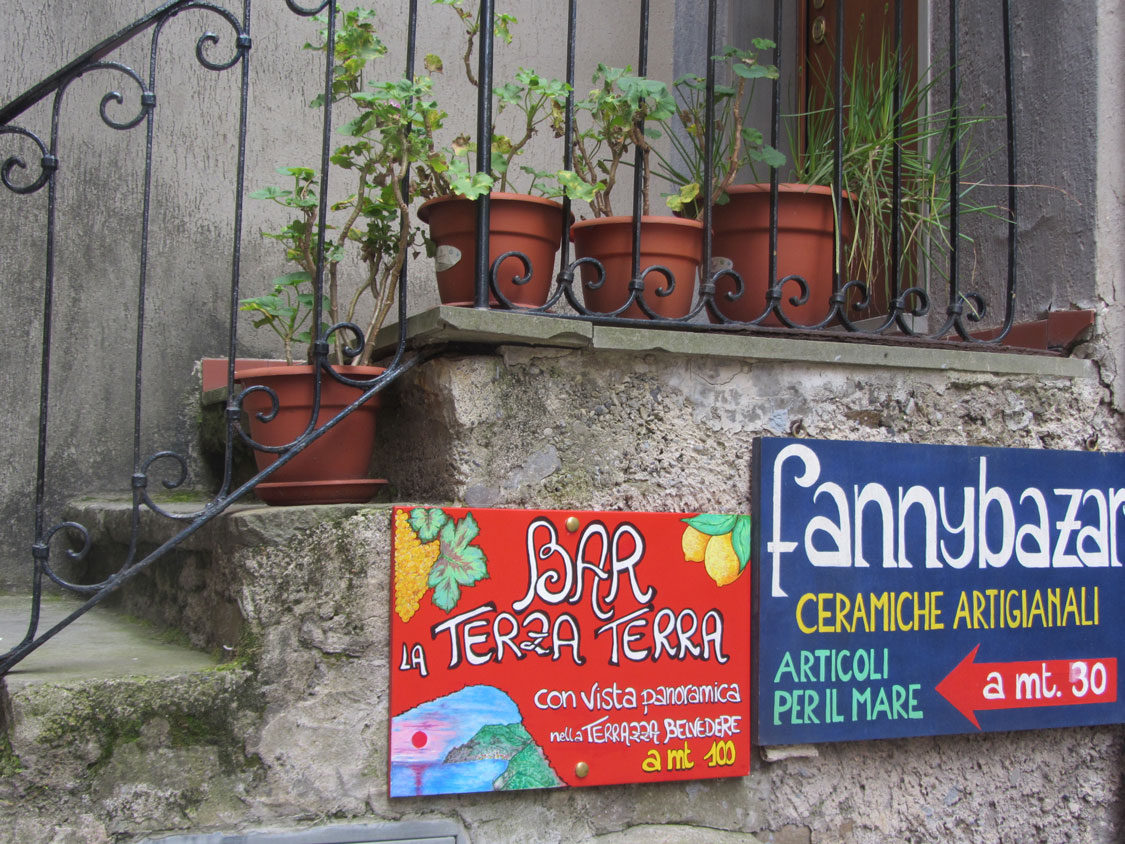
The commercial side of Corniglia.
In the fourth village of Manarola, named after the Roman temple of Mani, God of the Souls of the Departed. Here too, the Church of San Lorenzo has a rose window dating back to 1338. In Riomaggiore, named after the river that runs under the main street, take time to wander through the plethora of shops and boutiques and admire the harbour and pebble beach with a little liqueur and a tiramisu
TRAVEL TIPS
MUST-SEE SIGHT Catch the boat from Porto Venere to Monterosso and enjoy the spectacular views of the villages from the sea.
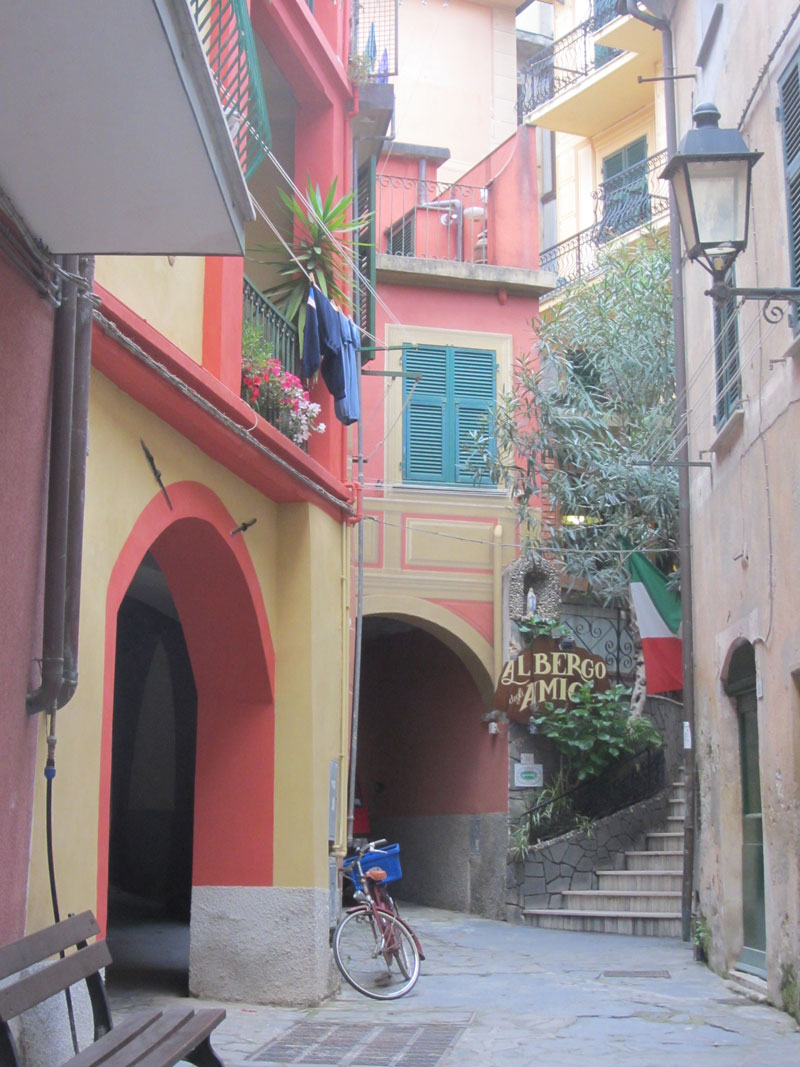
A charming side street of Monterosso.
NEED TO KNOW Minimal fitness is required for the lower paths, but for the top routes, you must be quite fit. Create your own route. Speak to locals and use the maps. And remember, no arrow means no path.
WHAT TO EAT There are no refreshments for sale en route, so pack water and snacks. Eat local produce as it’s fresher and cheaper.
PLANNING YOUR TRIP
WHEN TO GO The Cinque Terre is unbearable in high season, so take your chances with the weather and go in April/May or September/October.
GETTING AROUND Trains and boats link villages more often in summer. Update your timetable daily. Buy a Cinque Terre travel pass (one, two, three or seven-day), which covers walks, buses and rail plus some tourist spots. You‘ll need to show your card at the beginning and end of each trail, so keep it on you. If travelling by car, park in Monterosso or Riomaggiore and walk or take the train from there.
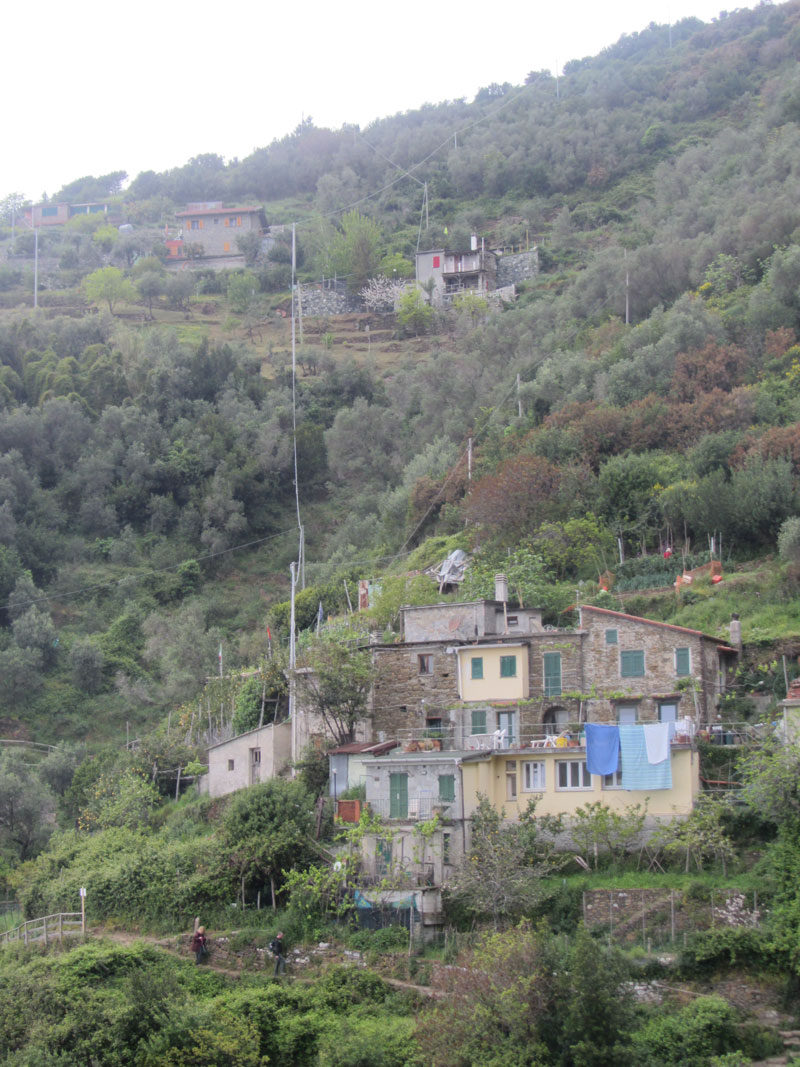
Walking allows you to see local life up close.
VISAS South Africans need a Schengen visa, schengenvisainfo.com
COST AND CURRENCY The currency is the Euro. An average meal is €12 – €15.

